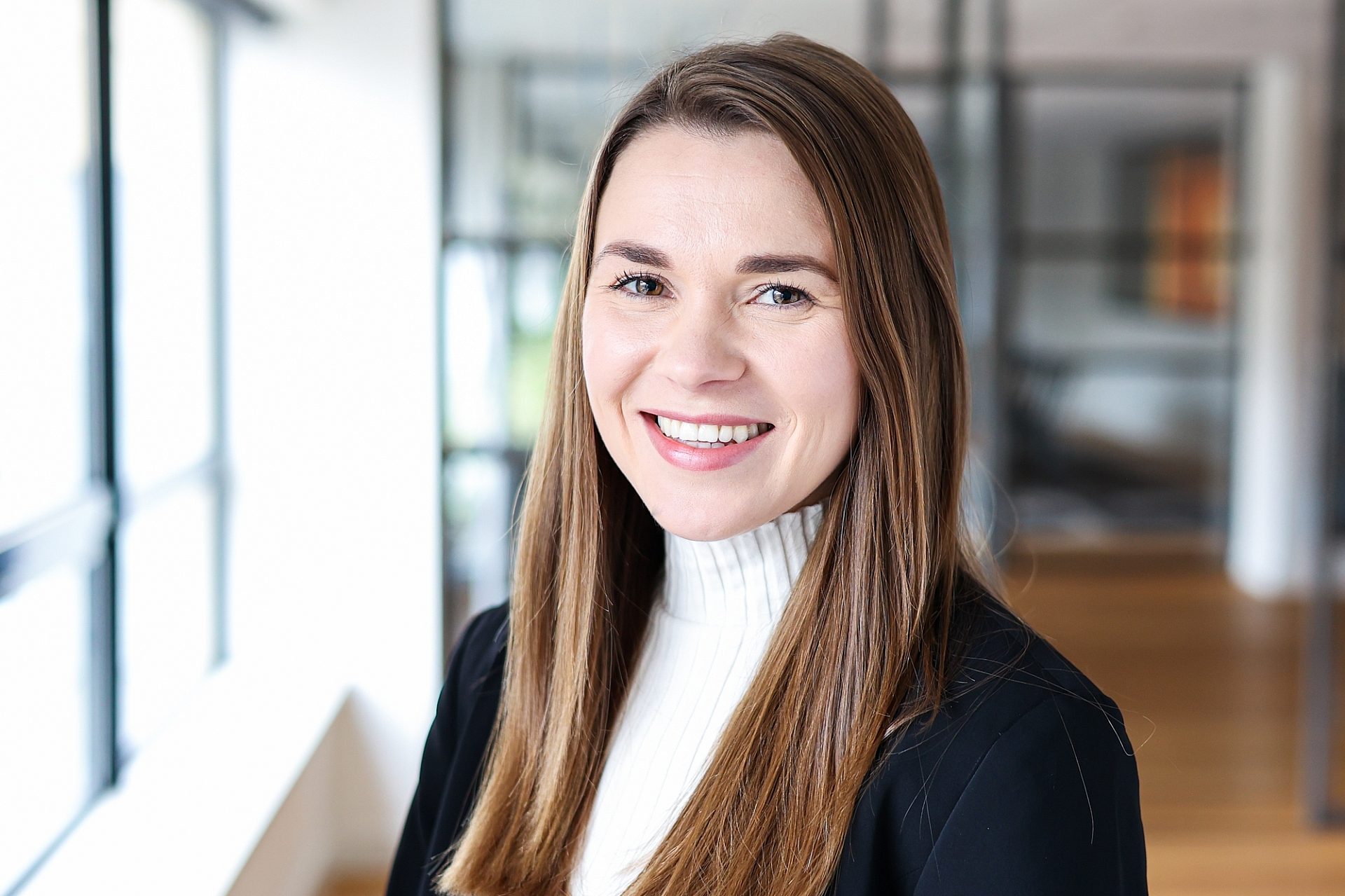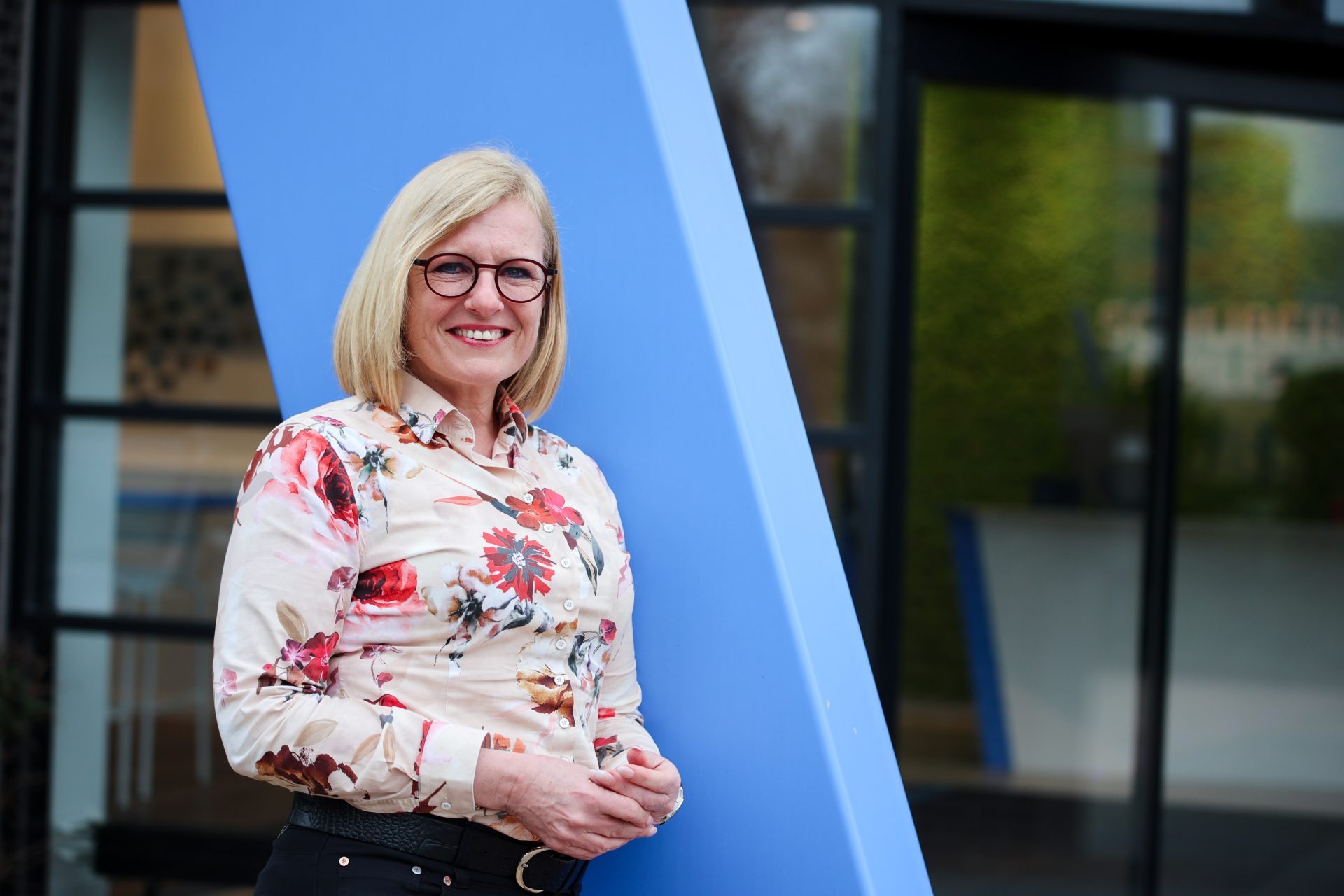Working life
You call yourself a Digital Business Transformation Consultant. Could you describe that role?
Officially, within Schuberg Philis my role is business consultant, but I find that title so generic. I call myself a digital business transformation consultant because that's the area where mostly I focus. Our role is to analyze the customer needs and pains, to really understand the question behind their question, and help the whole team find the best-fitting solution. Schuberg Philis always spends time really understanding a problem in the first place. To find the best solution, we work with different technologies and always match them to the customer problem instead of just taking solutions off the shelf, the way many consultancies do. Business consultants play a crucial role when talking with customers about business transformation because we usually have more industry experience. Within that role, we're responsible for bridging the gap between IT and business. Traditionally, these two worlds have worked separately. Nowadays, if you really want to digitally transform your business, you need those worlds to collaborate with each other. At Schuberg Philis, we're just a handful of business consultants and we all have different experiences, but typically we all fly around different customer teams.
How do you feel working across multiple teams?
I actually really like it because each time, I get to work with different engineers, Customer Operations Directors (COMs), and Customer Sales Directors. That way I also build my own personal network. I'm now dedicated to one of the greater customer teams (GTCs), and within that GCT, there is a scope of customers. Like everything at Schuberg Philis, you always have the freedom to choose customer projects of your liking. For example, I'm now working in a team for an appliances company, and when we started this MVP project, the first two weeks for me were full-time; I really could not do any other project. But as of this week, there's a bit of a dip in the attention needed of my role; we have highly skilled engineers who now are working on delivering a customer solution that we defined in those first two weeks. That's why I can now also be involved in new customer development for another team as well as engage with completely new customers. When you work in one team for a long time, it can get very cozy and comfortable. When you work with different teams all the time, the challenge is twofold: 1) managing your own workload across the teams and their differing peaks; and 2) delivering quality as a team, which means you need to understand each other's ways of working. For many engineers, it might be the first time they're working with a business consultant, so you're responsible for bringing engineers along into this business value-driven mindset.
What's a typical day like?
It really depends on the customer, and whether they're new or existing. If I'm engaging with a potential customer, a typical day would be talking to a Schuberg Phillis internal customer team – whoever is in the tech lead, sales, and a COM – and then strategizing together. The consultant usually plays a vital role in the proposal preparation phase by providing structuring, ensuring that we really answer the customer's question. There can be different types of engagement: a call, a lunch meeting, or a workshop. If we invite customers in for a workshop at Lab271, then I would say the consultant really leads that content preparation. It's a creative type of process, trying to tailor-make this approach that impresses our solution upon the customer. Above all, our focus is on building a relationship by better understanding the customer's business context and seeing not just how but if we can help. Sometimes Schuberg Philis says "no" to a potential customer because we feel other parties could help them better. We don't just focus on selling; since we have this self-steering culture, if we were to sell a project but none of the engineers wanted to join, we would have a problem. But once the proposal is accepted by the customer and the contract is signed, execution starts. So long as it's a business transformation-driven project, the consultant basically organizes that whole process. Typically, the first couple of weeks are very intense because we are deep-diving into understanding the customer context even more than in the presales phase and discovering how to best get the needed information for engineers. Then it's about delivering the results we have promised. Engineers take care of the technology while consultants get involved in business value tracking and change management efforts, ensuring our solutions get adopted by the end users.
Company culture
Are there any company attributes that you're sure to find across all teams?
I would say this total dedication to 100% quality. That's the reason I joined this company. This 100% thinking resonated very well with me because I've sometimes noticed that in other companies, 60% or 70% may be enough, while I am always striving for more. At Schuberg Phillis, I always find that 100% quality. I see highly dedicated people. It is really consistent wherever I go within the company. What constitutes 100% can be subjectively perceived, but in the end, I always recognize that dedication in all my colleagues.
How else is Schuberg Philis unlike your previous employers?
From my first step of interaction with the recruiter, I saw that this company is different from others. Schuberg Philis really likes to get to know you as a person. You can really be yourself. Sometimes it might feel a bit uncomfortable if you are not used to that because it might feel too personal. But they genuinely want to understand who you are as a person, and of course that reflects who you are as a professional. So before joining Schuberg Philis, I had a career break; I was in Uganda volunteering with women. And I remember when I was searching for a new job, I felt many companies were looking at me as though I was a bit unfocused, assuming that I might be a disloyal colleague, likely to quit my job again and go abroad, leaving the company. But during the hiring process at Schuberg Philis, they were really curious and wanted to know why I did it. I didn't feel judged as I did by other companies, and that gave me a nice feeling. At Schuberg Philis, you don't need to wear a mask; you can be yourself. For example, from personal experience nowadays as a full-time working mom, I face some challenges sometimes, but I can openly share my struggles and feel supported by others.
Passion project
What do you like to do when you're not working?
I'm an active, curious, and social person. I like traveling, doing sports, learning about different cultures, and getting to know new people. To this end, a few years ago, I co-founded the Benelux Baltics in Business networking platform. I got involved in this project as a patriotic Lithuanian, now living in the Netherlands for 12 years with my Dutch boyfriend and a son who is half-Dutch. It began a few years ago after thinking for some time about how I could contribute to my country more. A couple other Lithuanians and I decided to create a go-to network for business professionals and entrepreneurs from the Benelux and the Baltics. We started it as an experiment to see if it was really needed. And right from the foundation, when we organized the first annual event where more than 100 professionals showed up, it clearly gave us a sign that we need to continue and do more. Currently, we are organizing our fourth annual conference in September, aiming to attract over 200 participants. On top of that, we organize other smaller events. Personally, this networking club helps me because I'm at the stage where I realize that to reach the next step in my career, it's not so much but about the skills; it's a lot about networking. And the club specifically supports my job at Schuberg Philis by enabling me to get to know more people, learning about industry challenges and different perspectives. In fact, I see the same for Schuberg Philis: when you're an ambitious company and want to acquire new customers, networking is extremely important.
Within Schuberg Philis, where you work across multiple teams, network community building also seems natural.
As a business consultant, I really enjoy getting to know different people, getting to know different businesses and seeing and connecting people with each other. I see lots of people just lunch in their own customer teams; if I come to lunch alone, I can sit with any one of five teams and feel very comfortable because I know so many people. In this connector type of role, of course it's not like you always know everyone everywhere, but you reach them through, as they say in Dutch, via via. Via your extended network, you always find someone. That's the fun part.
Curious to know more about how more colleagues spend their days? See the whole series here.




